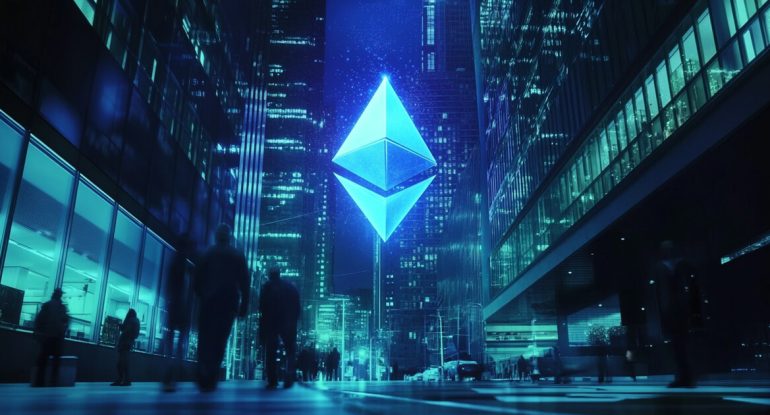Taxing L2s: Ethereum Values at Risk

Ye Zhang, a co-founder of Scroll, an Ethereum layer-2 network, recently voiced his disagreement with the idea of Ethereum charging fees to layer-2 networks.
In a comprehensive post on social media on April 2nd, Zhang explained his concerns. He believes this proposed fee structure is detrimental to Ethereum’s long-term goals, labeling it a “toxic” strategy that focuses too much on immediate profits at the expense of the ecosystem’s long-term health.
Zhang elaborated that Ethereum’s true power isn’t in collecting fees from rollups. Instead, he sees it in establishing ETH as the core asset across the expanding Layer-2 landscape. He feels that taxing these L2s is reminiscent of traditional corporate practices and goes against the very decentralized spirit that Ethereum embodies.
For Zhang, Ethereum’s success shouldn’t be judged by how much revenue its protocol generates. Instead, he envisions it as the foundational economy for a growing ecosystem centered around rollups.
He pointed out:
“ETH’s real strength isn’t in protocol fees — it’s in becoming the hub asset across thousands of rollup ecosystems. That’s the future.”
Zhang further highlighted ETH’s strong position, noting its widespread use across prominent L2 platforms such as Base, Arbitrum, Optimism, zkSync, and even Scroll itself. He also mentioned that even on networks like StarkNet, which don’t use ETH for transaction fees, it remains a vital trading pair on decentralized exchanges.
Looking Ahead: Ethereum’s Future
With this in mind, Zhang presented two potential paths for Ethereum’s development. One path envisions ETH transforming into a reliable store of value and the central hub for all rollup activity.
In Zhang’s words:
“Every aligned L2 expands Ethereum’s surface area and social consensus. A thousand scalable rollups with ETH as the center > any monolithic chain.”
Alternatively, Ethereum could choose to focus on taxing L2 transactions. However, Zhang cautions that this approach might push L2 networks to explore alternative data availability solutions, potentially diminishing ETH’s influence across the wider blockchain ecosystem.
To prevent this less desirable future, Zhang advocates for the Ethereum community to prioritize scaling transaction processing and enhancing data availability infrastructure.
He specifically suggested aiming for a 1000-fold increase in blob capacity and promoting the development of shared resources like cross-rollup liquidity bridges and interoperability solutions.
Zhang summarized his vision by saying:
“ETH wins by being the gravity, not the toll booth.”
Mentioned in this article












